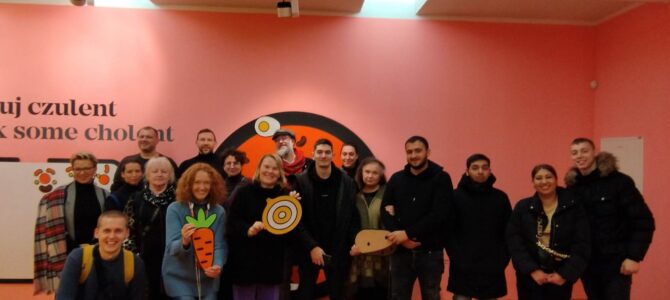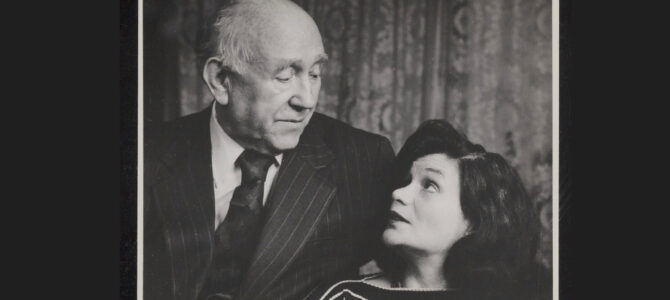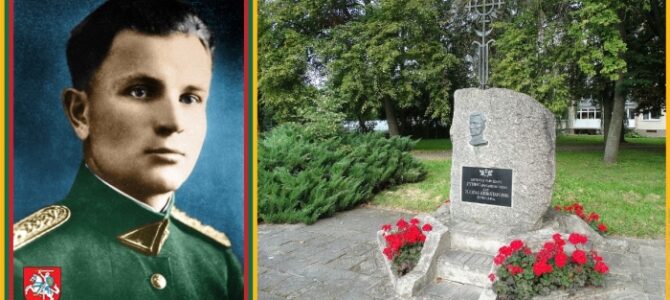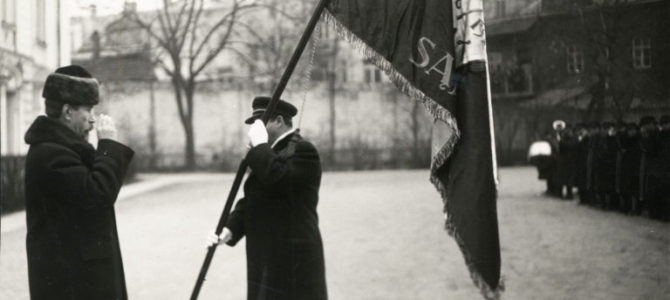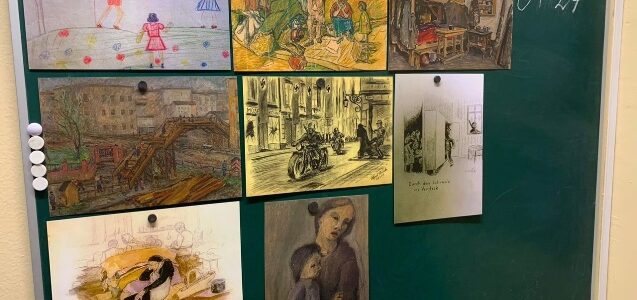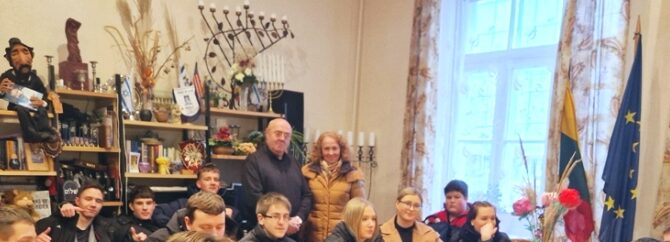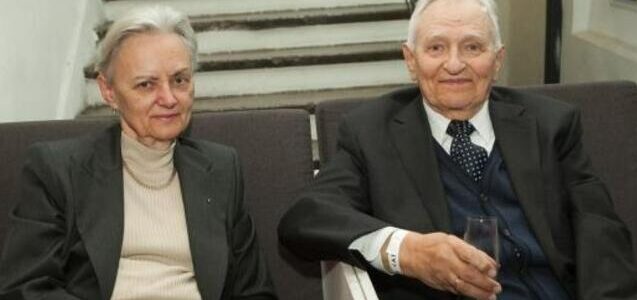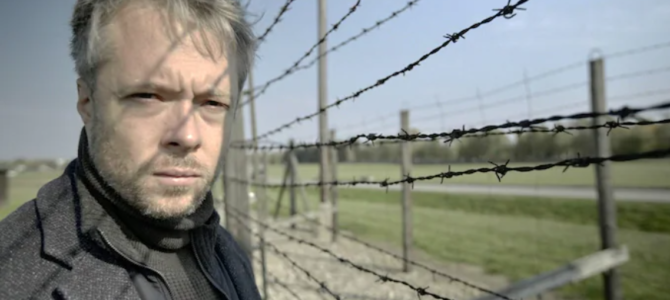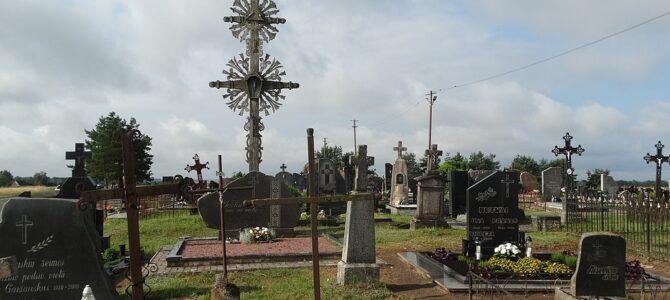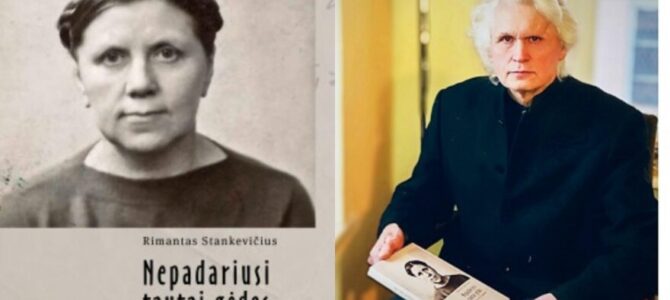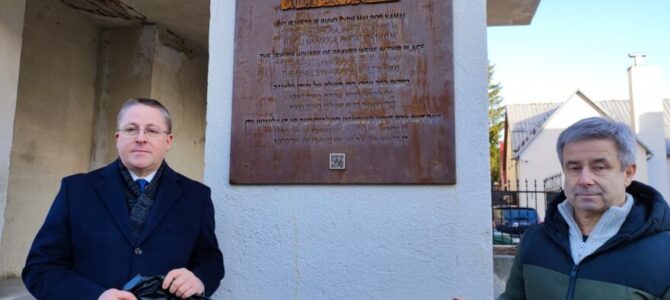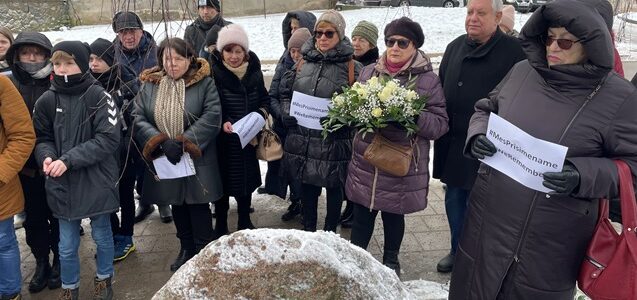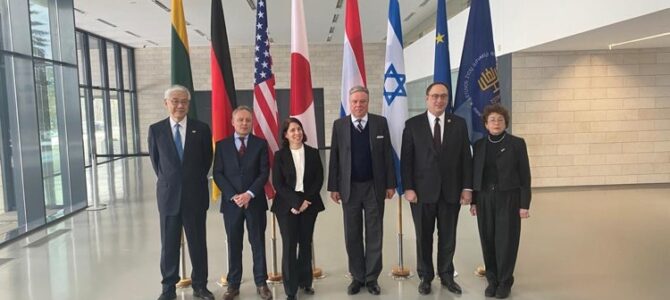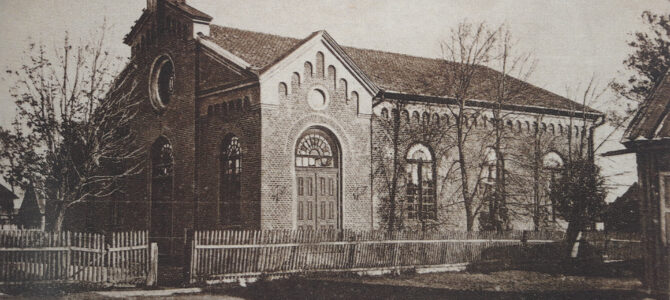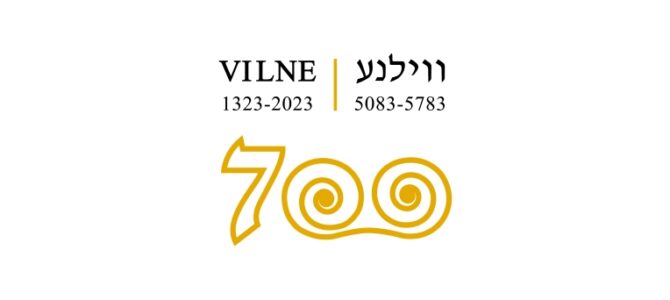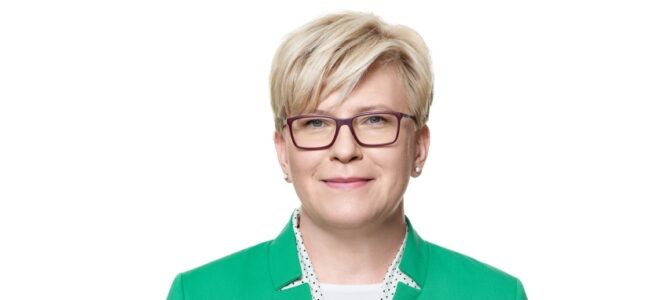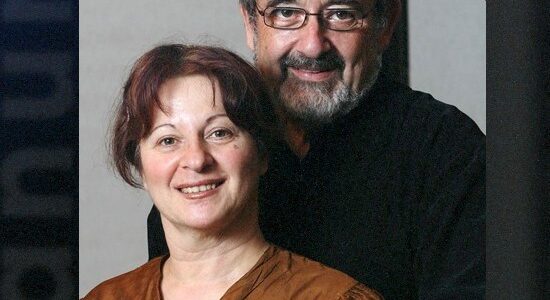Participants in the project to promote mutual understanding among young future leaders from Lithuania’s Roma and Jewish ethnic communities sponsored by the Goodwill Foundation and Germany’s EVZ Foundation visited the award-winning POLIN Jewish history museum in Warsaw. Besides viewing the interactive exhibits teaching about 1,000 years of Jewish history in Poland, the young people and educators engaged in a discussion there among themselves and with educators from the museum
People often say there are two Warsaws, pre- and post-war, not surprising since the entire city was leveled in warfare and especially during the Warsaw Uprising, and painstakingly reconstructed in the post-war period. The female guide for the Lithuanian delegation was a rare original resident of the Polish capital and able to speak something like seven languages.
“This museum is a huge story and we have the moral duty to tell it,” she said. The bright modern museum located in the Warsaw ghetto stands in sharp contrast to the dark granite monument commemorating the heroes of the Uprising. The guide told the group around 80% of world Jewry called Poland home for centuries. The Lithuanian delegation led by the guide viewed multimedia installations, texts, music, paintings, photographs and recreated scenes from Jewish daily life.


